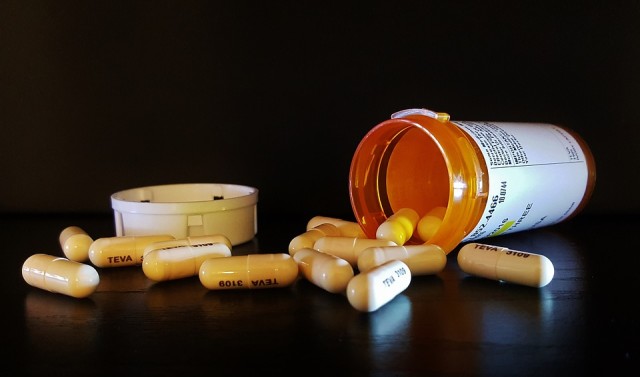The indictment investigation of the generic-drug industry has already resulted in more than 10 cases against companies and executives.
The U.S. Department of Justice filed a criminal indictment against Israeli drugmaker Teva Pharmaceuticals Tuesday in a Pennsylvania federal court.
According to the indictment, Teva alleges it engaged in coordinating prices, tenders, and dividing customers between the partners in the conspiracy, as well a artificially raise the prices of medicines.
Teva is facing three cases of antitrust violations that occurred between May 2013 and December 2015.
1 – The Antitrust Department of the US Department of Justice claims in the lawsuit that Teva committed violations of the Antitrust Law, which inflated the prices paid by consumers in the amount of $350 million.
The lawsuit alleges that Teva adjusted the prices of the generic version of the drug Pravachol, which is designed to lower blood cholesterol levels.
2 – A price coordination, tenders and customer sharing among the participants in the conspiracy concerning drugs that treat Rheumatoid arthritis, seizures, pain, medications for skin diseases, and medications for blood thinning.
3 – This case concerns drugs for the treatment of brain cancer, cystic fibrosis, rheumatoid arthritis, and excess blood pressure.
According to the lawsuit, the companies that participated in connection with price coordination included, among others, Glenmark, Canadian Apotex; Novartis AG’s Sandoz subsidiary; and Taro Pharmaceuticals, controlled by Indian Sun.
Most companies so far have agreed to settle charges by paying criminal penalties, admitting wrongdoing, and agreeing to cooperate with the Ministry of Justice.
The prosecution on its part agreed the government would drop the cases as long as the defendant companies fulfilled their obligations under the settlements, pay a fine in exchange for dismissal within a limited period, usually three years.
Of these companies that reached the deals were Novartis, which agreed in March to pay a $195 million criminal penalty, and Taro, which agreed in July to pay $205.7 million.
Companies in most cases agree to this type of arrangement because a conviction in a criminal lawsuit of the type in which Teva was sued could result in the defendant being removed from the federal insurance plans.
The maximum statutory fine for each of the lawsuits is $ 100 million, but the fine may be higher – up to twice the profit of the convicted company, or twice the damage done to consumers. The lawsuit was filed against Teva after the failure of contacts between Teva and the U.S. Department of Justice over a similar arrangement.
Teva said in response to the indictment: “Teva is disappointed that the US Department of Justice has chosen to pursue this lawsuit. Teva has been investigating this matter for more than four years and concluded that it did not participate in price coordination. Based on our internal investigation, Teva vehemently denies the allegations. The law. Teva cooperated throughout the investigation and tried to reach an arrangement that would serve the interests of the company, its stakeholders, and the patients it serves. The Ministry of Justice refused to consider alternatives that would not severely harm Teva and its stakeholders, including patients who rely on our drugs.
“Even as we defend the company in this process, Teva will continue to focus on its vital role in the US healthcare system, where it ensures access to affordable drugs, including millions of patients with multiple chronic diseases. In the U.S. alone, one in 10 of the 3.69 billion generic prescriptions given Every year it is a product of Teva.”
With nearly $17 billion in sales last year, Teva is among the largest drugmakers companies globally. Since 2015 the company has seen shares fall more than 80% due to the collapse of generic drug prices and a heavy debt load. Teva has new management initiated a restructuring.
Teva and other generic companies were sued in May 2019 by 40 U.S. states. The lawsuit was later expanded to include 54 states and counties, claiming senior U.S. retailers and other companies – such as Mylan, Lannett, Sandoz of the Novartis Group and Pfizer – raised a variable rate of Up to 1,000% the prices of 112 drugs, and coordinated with other generic companies the prices of 86 additional drugs, as mentioned by The Marker.
The lawsuit also deals with an attempt by senior US Teva officials to conceal evidence and disrupt investigative proceedings by text messages and coordinating versions with representatives of other generic companies. The lawsuit was a significant extension of a previous lawsuit filed against Teva and other generic companies in December 2016. There has been a partnership in market sharing and a coordinated increase in the prices of an antibiotic drug against acne, and of a drug to control the blood sugar level of diabetics.
Read more about: lawsuit, Teva Pharmaceutical




